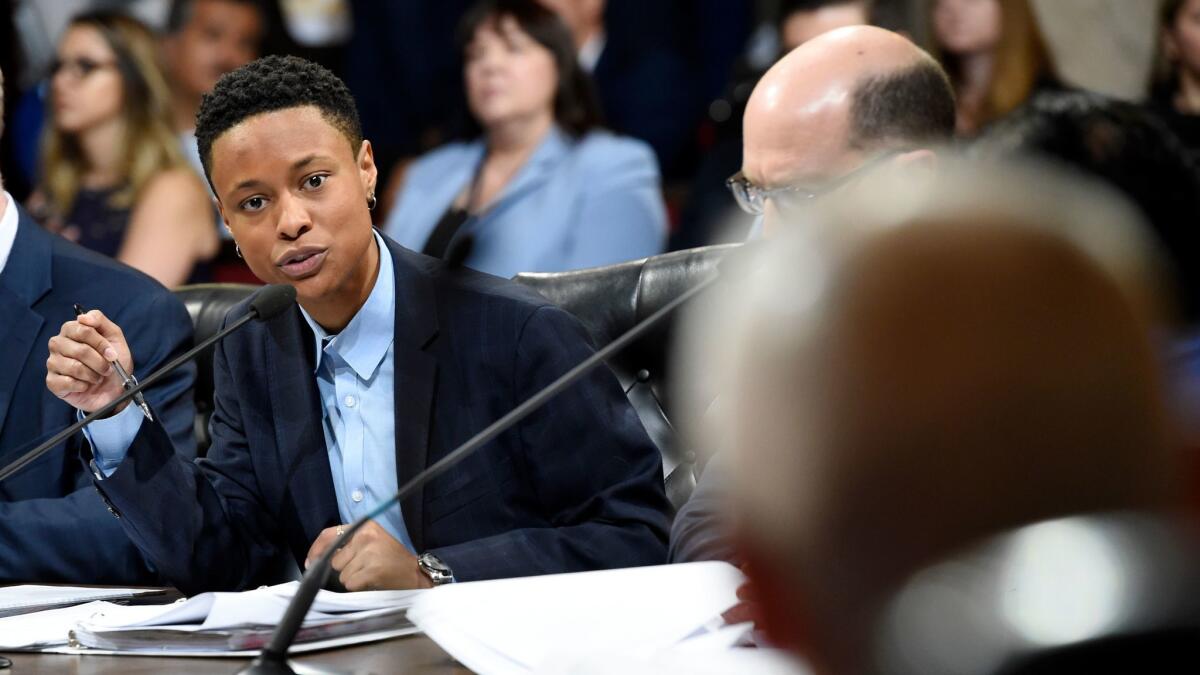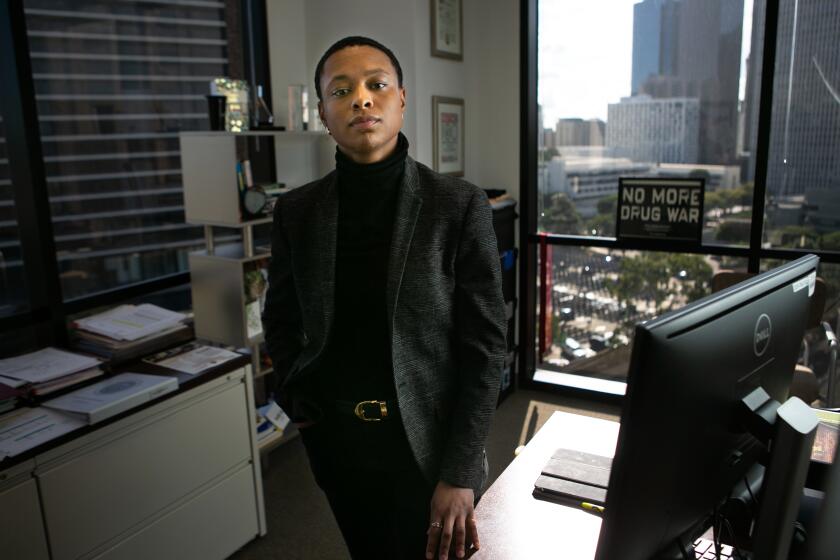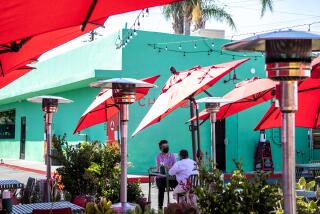L.A. revamps rules for cannabis licensing, hoping to redress harm from war on drugs

Los Angeles is revamping its rules for handing out licenses to cannabis businesses, amid anger and disappointment over the tumultuous rollout of a program meant to address the damage done by criminalizing marijuana.
The rules passed unanimously Wednesday by the Los Angeles City Council tighten the criteria for new applicants seeking to qualify for the “social equity” program, which is supposed to ensure that people from communities hit hardest by the war on drugs benefit from marijuana legalization.
“We all know social equity has been a failure, here in L.A. and across most jurisdictions. Too many loopholes ... This is the first real hope for social equity to succeed,” Lynne Lyman, who led the Drug Policy Action campaign for the legalization of recreational cannabis in California, said at a recent city meeting on the changes.
Until now, the social equity program has broadly targeted people who have cannabis convictions or have lived in areas with disproportionate arrests for marijuana crimes, but critics said the rules were too loose. Many complained that Black entrepreneurs were underrepresented, despite the heavy toll of cannabis criminalization on Black communities.
Cat Packer seemed to personify L.A.’s progressive vision for cannabis. Then there were problems, an uproar from cannabis applicants and activists.
For instance, Los Angeles previously designated the areas hit hardest by marijuana arrests by ZIP codes, looping in wealthier areas along with poorer ones that had high levels of arrests. Among the eligible ZIP codes was 90027, which includes affluent, predominantly white stretches of Los Feliz.
Now the city is narrowing the eligible areas to police reporting districts — a move that Department of Cannabis Regulation head Cat Packer said would better target the most drastically affected communities.
“We agree that this process needs improvement ... and we’ve tried to make our recommendations as reflective as we can of the feedback that we received,” Packer said.
Los Angeles will also change the way cannabis entrepreneurs compete in the next round of licensing for shops.
The last time around, hundreds of people rapidly flooded a first-come, first-serve application system that became embroiled in controversy. Cannabis entrepreneurs are suing the city over the “flawed process,” arguing that some competitors got an unfair advantage because they accessed the application system before the official launch time.
This time the city plans to use a lottery system. Social equity applicants vying for the next round of retail licenses in that lottery must have a California cannabis arrest or conviction to be eligible, in addition to being either low-income or living a decade in the hardest-hit areas.
L.A. previously permitted applicants who had lived in the designated neighborhoods but didn’t necessarily have an arrest or conviction. But other paths to running a cannabis business — including licenses for other kinds of marijuana businesses besides shops — remain open to applicants who don’t meet the new requirements, Packer said.
The first-come, first-serve rush for licenses drew a battery of complaints last time around, but not everyone is pleased with the lottery system for the next round of retail licenses.
The California Minority Alliance, which advocates for more representation of Black and Latino business owners in the cannabis industry, complained that relying solely on a lottery would mean there was no gauge of whether a business was likely to ultimately succeed.
The city is also clarifying its language about how much control a social equity applicant must have in a business, changes that Packer said are meant to strengthen the requirements. Social equity applicants routinely partner with wealthy investors, raising concerns about predatory agreements.
If those agreements aren’t vetted properly, “what we’re setting up is economic apartheid, where you are forcing people to have to be beholden to investors and landlords who control all the decision-making,” said Sherri Franklin, one of the founders of GoVerde Incubator, which works with social equity applicants.
And the city is also introducing new rules about when cannabis companies can get permission from the City Council to open their doors in neighborhoods that have already hit limits on the number of marijuana shops.
Critics have raised concerns that the process, which gives a lot of control to council members, could become a path for the politically connected to score licenses as others languish. Under the new rules, the council must make specific findings to grant such permission and the applicant must get written input from the neighborhood council and others in the area.
It also makes a major change to the way such requests are approved: Under the previous rules, if the council failed to act promptly on a request to open a shop in a saturated area, the request was automatically approved. Under the new rules, a request is denied if the council fails to act on it within roughly three months.
One law firm that represents cannabis firms, Margolin & Lawrence, warned in a letter to the council that the new standards “could still be too vague and leave room for corruption or other improper criteria being used to approve or deny,” such as race. It argued that a better process would include public hearings to “prevent decisions being made in back rooms.”
Ahead of Wednesday’s vote, some cannabis applicants pleaded with the council to allow many more shops, arguing that the limited number of licenses has strangled an economic opportunity. Hundreds more storefronts “will bring thousands of much needed jobs for our fellow Angelenos,” one applicant told the council.
More to Read
Sign up for Essential California
The most important California stories and recommendations in your inbox every morning.
You may occasionally receive promotional content from the Los Angeles Times.












